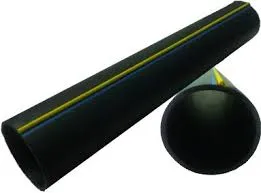Oct . 16, 2024 01:07 Back to list
hdpe irrigation pipe
The Importance of HDPE Irrigation Pipes in Modern Agriculture
In the ever-evolving world of agriculture, efficient water management is pivotal for maximizing crop yield and ensuring sustainable farming practices. One of the most significant advancements in irrigation technology is the adoption of High-Density Polyethylene (HDPE) pipes. Widely recognized for their durability, flexibility, and resistance to various environmental factors, HDPE irrigation pipes have become indispensable in modern agricultural systems.
The Importance of HDPE Irrigation Pipes in Modern Agriculture
One of the critical advantages of HDPE pipes is their flexibility. This feature allows for easy bending to accommodate various land contours and layouts, enabling farmers to design efficient irrigation systems that maximize water distribution. Additionally, HDPE pipes are resistant to cracking and splitting, which makes them ideal for regions with extreme temperature fluctuations. This resilience significantly reduces the risk of leaks and wastage, ensuring that water resources are used judiciously.
hdpe irrigation pipe

Water efficiency is at the core of sustainable farming, and HDPE irrigation systems are designed to facilitate precise water delivery to crops. Drip irrigation, for instance, utilizes HDPE tubing to deliver water directly to the root zones of plants. This method not only minimizes evaporation and runoff but also reduces the overall volume of water needed for irrigation. As water scarcity becomes an ever-pressing issue in many parts of the world, efficient irrigation methods powered by HDPE pipes are more crucial than ever.
Moreover, HDPE pipes can be easily integrated into various irrigation systems, whether for surface irrigation, subsurface irrigation, or even in vertical farming settings. Their adaptability and compatibility with modern agricultural technologies make them a favored choice among farmers. The ability to connect to automated irrigation systems allows for precise control over water application, further enhancing crop health and productivity.
In terms of environmental impact, HDPE pipes are also a responsible choice. They are fully recyclable, contributing to a circular economy in agriculture. This characteristic not only reduces plastic waste but also encourages sustainable practices among farmers. As awareness of environmental issues grows, the use of HDPE pipes aligns with the aspirations of eco-conscious agricultural practices.
In conclusion, the adoption of HDPE irrigation pipes represents a significant step towards enhancing water management in agriculture. Their durability, flexibility, and efficiency make them a superior choice for farmers looking to maximize their yield while minimizing environmental impact. As the agricultural industry continues to face challenges related to climate change and resource scarcity, it is essential to leverage technologies like HDPE pipes to foster sustainable farming practices that can endure the test of time. By investing in modern irrigation solutions, farmers can secure their livelihoods and contribute to a more sustainable future for agriculture. Whether used in small family farms or large-scale agricultural operations, HDPE irrigation pipes are paving the way for a more water-efficient and environmentally friendly agricultural landscape.
-
High-Quality PPR Pipes and Fittings Durable ERA PPR & PVC PPR Solutions
NewsJul.08,2025
-
Black HDPE Cutting Board - Durable, Non-Porous & Food Safe HDPE Plastic Cutting Board
NewsJul.08,2025
-
High-Quality CPVC Panel Durable HDPE & PVC Panels Supplier
NewsJul.08,2025
-
Double PE Welding Rod Supplier - High Strength, Durable & Versatile Welding Solutions
NewsJul.07,2025
-
High-Quality PVC-O Pipe Supplier Durable 75mm PVC Pipe & Connections Leading PVC Pipe Company
NewsJul.07,2025
-
HDPE Drainage Pipe Supplier – Durable & Corrosion-Resistant Solutions
NewsJul.06,2025

